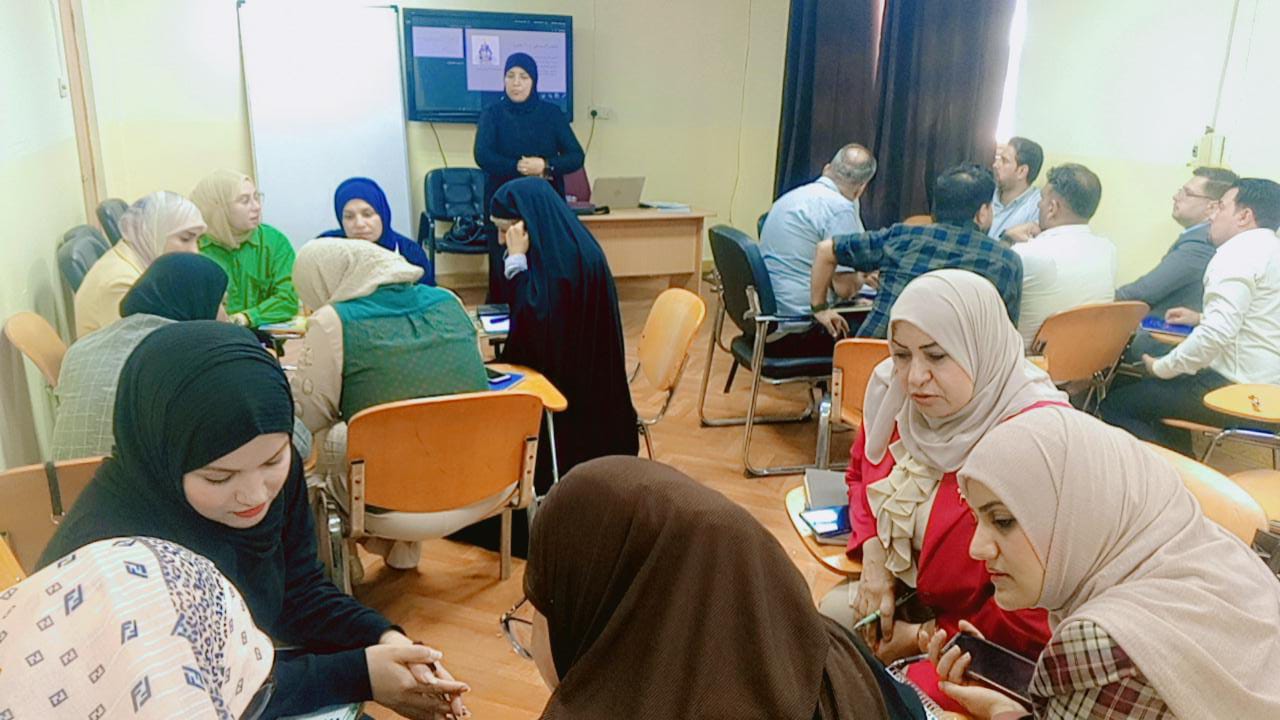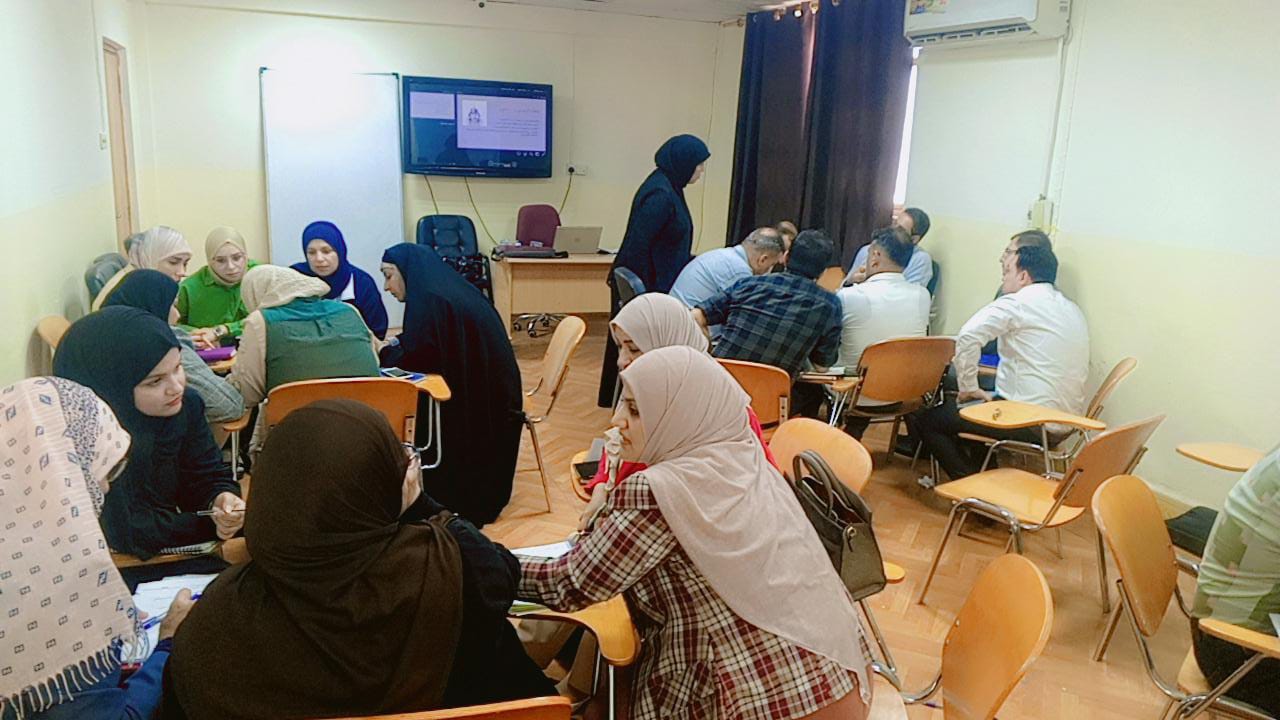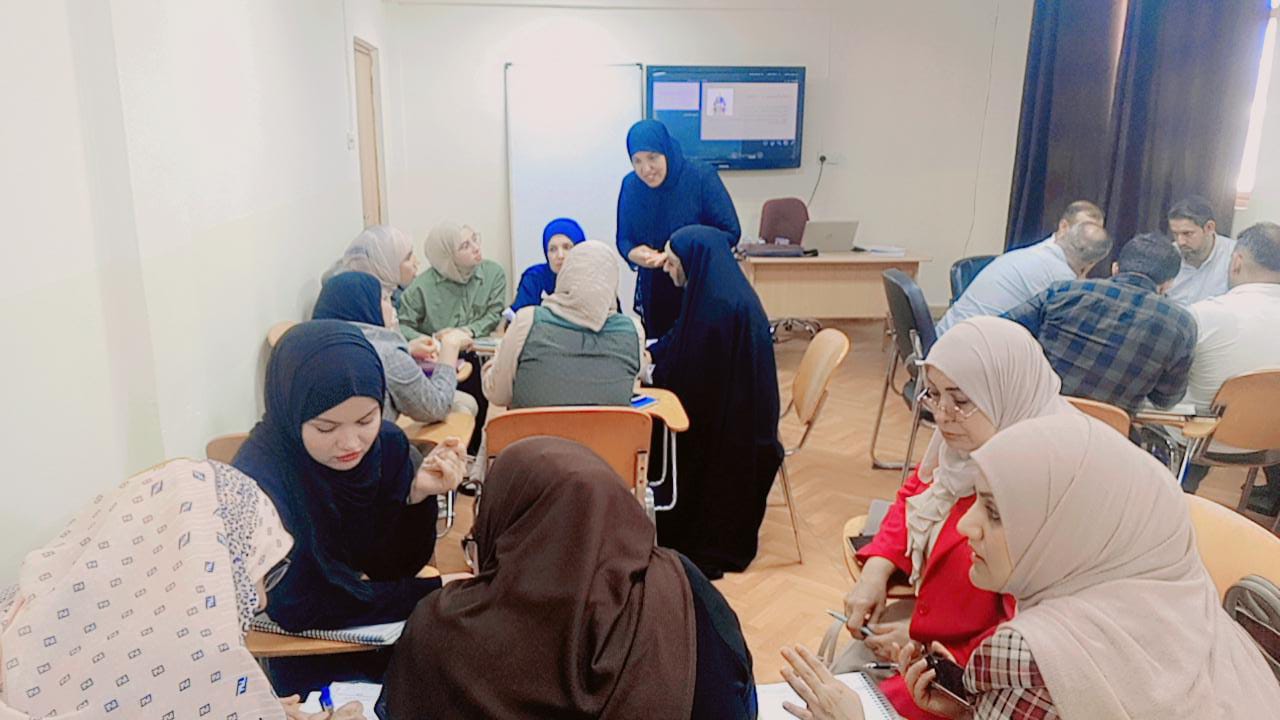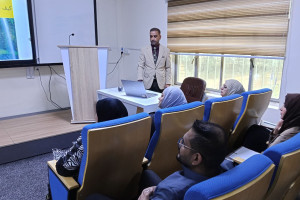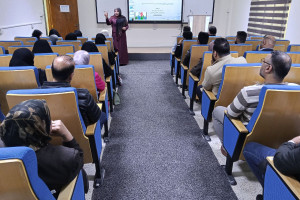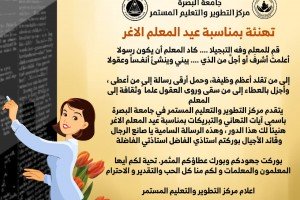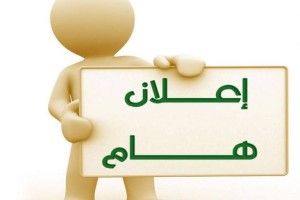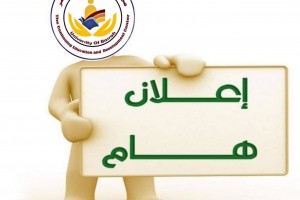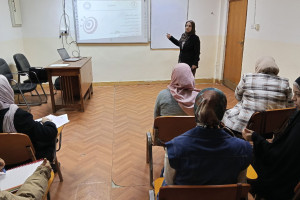
The Center for Development and Continuing Education at Basra University held a lecture on the difference between ethics and professional ethics in education for the sixth unit of the updated curriculum of the Teaching Methods course for the southern region, focusing on applied specialization.
The aim of the lecture was to clarify the concept of ethics and professional ethics in education and to understand the difference between them. After the lecture, trainees should be able to:
- Understand the concept of profession and craft.
- Differentiate between the meanings of ethics and professional ethics.
- Discuss the ethics of the teacher and their role in the educational process.
The lecture, presented by Dr. Inaam Mahmoud Al-Rubaie, a faculty member at the College of Science at Basra University, included an introductory video on the importance of ethics in society and the decline in the value system that society faces. It also addressed the importance of ethics as a system of values and principles that serve as a criterion distinguishing good from bad behaviors. The sources of the ethical system were highlighted, including historical value heritage that has remained active and relevant, modern life experiences, and successful and advanced contemporary societies. For individuals, the source of ethics starts from the family, then colleagues, peers, friends, and teachers.
The lecture also covered theories related to moral education, including the Social Group Behavior Theory and the Comprehensive Moral Development Theory. It explored whether teaching is a profession or a craft, noting that a profession involves a set of tasks requiring specific skills and training, while a craft involves work that needs short-term training.
Moreover, the distinction between ethics and professional ethics in the teaching profession was made clear, emphasizing the importance of ethics in education. The ethics of the teacher and their role in the educational process were discussed, highlighting that the teacher occupies the central position in the educational system, much like the heart in a body, connecting various parts and acting as a technical and administrative supervisor to achieve educational goals, complementing the family and society's role in shaping the student's character.
In conclusion, there was a recommendation for the importance of a qualification test for practicing the teaching profession and the formulation of a specific code of ethics for the education profession
